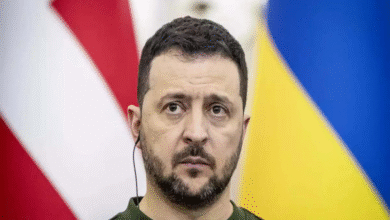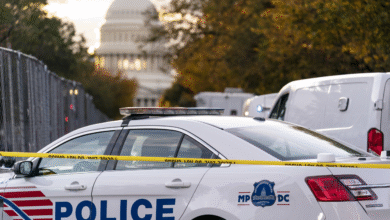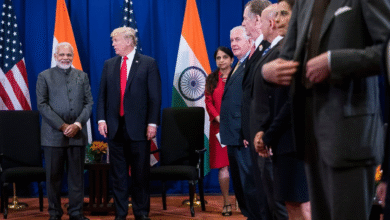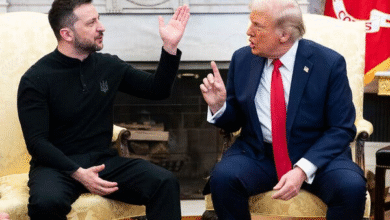West Virginia National Guard Deployment to D.C. Explained
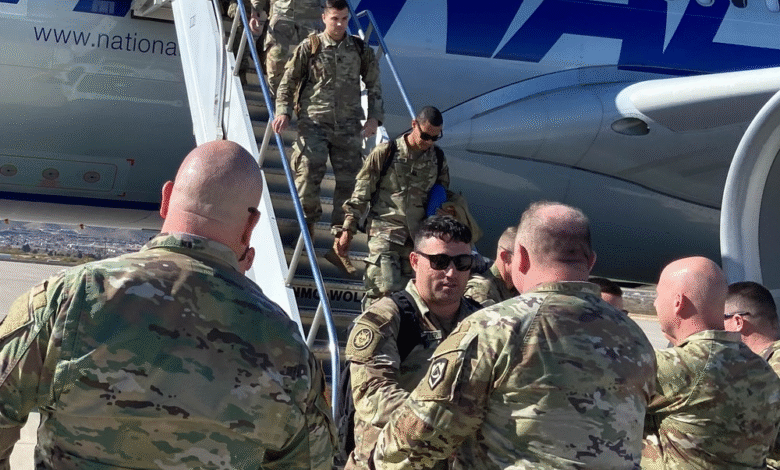
West Virginia National Guard deployment has recently been announced as part of a strategic move to bolster security in Washington, D.C. Governor Patrick Morrisey revealed that up to 400 troops from the West Virginia National Guard will be sent to the nation’s capital, responding to a request from the Trump administration. This mobilization includes mission-essential equipment and specially trained personnel to enhance the military presence in D.C. Morrisey expressed pride in supporting initiatives aimed at maintaining safety and order, stating, “The men and women of our National Guard represent the best of our state.” As the call for enhanced security coincides with President Trump’s broader crime crackdown in Washington D.C., local residents are poised to experience a significant increase in law enforcement visibility.
In a decisive action to address public safety, the deployment of National Guard units from West Virginia to the capital signifies a broader national concern about crime and security. As local authorities and federal agents team up to manage increasing safety challenges, this mobilization aligns with the Trump administration’s strategic efforts to enhance military readiness within urban centers. Support from state officials like Morrisey further reinforces the commitment to public safety in the face of fluctuating crime rates. The presence of the West Virginia troops not only aims to deter unlawful activities but also provides essential support to local law enforcement, creating a collaborative environment for maintaining order. This partnership underscores a collective approach to ensuring a secure atmosphere in Washington, D.C., as more citizens and visitors are inevitably impacted by heightened security measures.
Deployment of the West Virginia National Guard to D.C.
West Virginia Governor Patrick Morrisey has officially announced the deployment of members from the West Virginia National Guard to Washington, D.C. This mobilization is part of a broader strategy in response to a request from the Trump administration aimed at reinforcing the military presence in the nation’s capital. The deployment includes approximately 300 to 400 troops, equipped with essential mission gear and specialized training that will enable them to effectively support operations in Washington.
Governor Morrisey emphasized the pride West Virginia takes in its National Guard members, highlighting their essential role during domestic deployments. In his statement, he expressed a shared commitment to ensuring the safety and security of the capital, affirming that the National Guard troops exemplify the best values of West Virginia. This collaborative effort not only strengthens the military’s presence in D.C. but also reinforces the state’s dedication to national security.
Impact of Increased Military Presence in Washington D.C.
The Trump administration’s decision to enhance the military presence in Washington D.C. represents a significant shift in strategy concerning urban safety and crime prevention. As National Guard soldiers and federal law enforcement join local police in patrolling the streets, residents are likely to notice a visible difference in their communities. This increased presence is part of a concerted effort to deter crime and support law enforcement operations, as highlighted by the White House’s announcement regarding the National Guard’s responsibilities.
In light of recent developments, the dynamic between local law enforcement and federal military presence has sparked debates among politicians. With crime rates in Washington D.C. being reported at their lowest in years, critics question the necessity of deploying additional National Guard troops and the potential implications for civil rights and community relations. The presence of the National Guard, as well as plans for crime crackdowns, is seen by some as an overreach, while others argue it is a pragmatic response to rising concerns about public safety.
The Role of the National Guard in Crime Prevention
The National Guard plays a crucial role in crime prevention strategies, especially during times when the surrounding environment poses challenges for local law enforcement. By deploying the West Virginia National Guard to D.C., officials aim to provide essential backups to city police during heightened safety operations. Their involvement is geared toward creating a secure atmosphere, ultimately making it easier for law enforcement to perform their duties and maintain order.
Moreover, the presence of National Guard troops is intended not just as a deterrent to crime but also as a demonstration of commitment from state governors and federal leaders. As seen in this instance, Governor Morrisey’s deployment serves a dual purpose: bolstering local security while enhancing the visibility of law enforcement efforts in tourist-heavy areas, which can sometimes be more susceptible to crime. This strategic alliance between the National Guard and local police illustrates a concerted approach to modern law enforcement.
Political Reactions to National Guard Deployments
The decision to deploy the National Guard has incited a variety of political reactions, particularly from leaders who view this move through the lens of political legitimacy. Criticism has emerged from prominent Democratic figures who label the Trump administration’s actions as excessive and categorize the deployment as an ‘unjustified power grab.’ In the eyes of detractors, the influx of National Guard troops into Washington D.C. may symbolize an underlying agenda rather than a purely defensive measure against potential crime.
On the other hand, supporters argue that deploying the National Guard is a robust response to ensure public safety and uphold order in the district. The contrasting views highlight a growing divide in opinion regarding the balance of power between local and federal authorities when it comes to managing security issues. Ultimately, this debate touches on deeper societal themes concerning governmental authority, public safety, and community trust in law enforcement.
Historical Context of National Guard Mobilization
The mobilization of the National Guard has a rich historical context, particularly as it pertains to civil unrest and national security operations. Deployments often arise during crises, whether natural disasters or civil disturbances, wherein the National Guard supports local law enforcement efforts. The current deployment of West Virginia National Guard troops to D.C. fits into this broader historical framework, emphasizing the military’s role in maintaining peace and security in urban environments.
Historically, these mobilizations have often faced scrutiny and varying degrees of public support, reflecting the complexities of military involvement in civilian matters. As we observe the current dynamics with heightened military presence aimed at preventing crime in Washington D.C., it is essential to acknowledge the past lessons and ongoing discussions regarding the appropriate roles of Guard units within civilian contexts.
National Guard’s Commitment to Local Communities
Though often perceived as a military entity, the National Guard fundamentally maintains a unique commitment to local communities. Troops from the West Virginia National Guard, as they mobilize to Washington D.C., represent not only their state but also the values of community support and engagement. Their involvement often transcends traditional military roles, building bridges within neighborhoods and providing assistance during times of need.
This community-oriented stance is reflected in the sentiments expressed by Governor Morrisey, who identified the National Guard as a symbol of the best attributes of West Virginia. Their mission in D.C. may ultimately reinforce community ties back home while highlighting the state’s proactive role in addressing broader security concerns. These connections are vital for fostering public trust and cooperation between residents and those tasked with their protection.
The Strategic Objectives of Deployment
The strategic objectives behind deploying the West Virginia National Guard to Washington D.C. are multi-faceted. Primarily, the deployment aligns with the Trump administration’s ongoing initiative to enhance the safety of the capital, particularly in light of recent urban disturbances. As part of these objectives, the National Guard is tasked with securing federal assets and assisting local police in maintaining order in an ever-evolving urban landscape.
Additionally, the strategic presence of National Guard troops serves to reassure both residents and tourists of the administration’s commitment to protecting the nation’s capital. Their role is centered around creating a secure environment where law enforcement can carry out their responsibilities effectively, fostering a sense of safety that is essential for both local inhabitants and visitors to Washington D.C.
Response of D.C. Residents to Increased Military Presence
The response of Washington D.C. residents to the increased military presence has been one of heightened awareness and mixed emotions. Many locals have voiced concerns regarding the perceived militarization of their neighborhoods, reflecting a fear of potential overreach and the impact on civil liberties. The arrival of National Guard troops and additional federal law enforcement agents has undoubtedly changed the atmosphere of everyday life in the capital.
Conversely, some residents welcome the presence of increased law enforcement as a necessary measure towards ensuring public safety, particularly in historically vulnerable areas. The duality of opinions underscores the complexity of integrating military support into urban policing strategies, revealing the ongoing dialogue surrounding public perception and the balance between safety and community freedoms.
Future Implications for National Guard Deployments
Looking forward, the implications of deploying the West Virginia National Guard to Washington D.C. could set precedents for future military involvement in urban policing. This move may alter how both state and federal resources are allocated during crises, prompting discussions about the operational roles of the National Guard in community safety. As these troops engage in urban environments, their effectiveness will be monitored by lawmakers and the public alike, shaping future deployments.
Moreover, the evolving nature of military-community relations will likely influence policies and practices for National Guard operations. Public sentiment towards these deployments could yield shifts in state leadership decisions, as governments balance the necessity of safety with the fundamental rights of citizens. Observing these trends will be critical as community needs evolve in response to both crime and the perceptions of safety enforced by military presence.
Frequently Asked Questions
What is the purpose of the West Virginia National Guard deployment in Washington D.C.?
The purpose of the West Virginia National Guard deployment to Washington D.C. is to support the Trump administration’s efforts to enhance military presence, protect federal assets, and assist law enforcement in maintaining public safety and order.
How many troops from the West Virginia National Guard are being deployed to Washington D.C.?
Governor Patrick Morrisey announced that 300-400 troops from the West Virginia National Guard will be deployed to Washington D.C. along with mission-essential equipment and specialized training.
Who is commanding the West Virginia National Guard troops deployed in D.C.?
The West Virginia National Guard troops deployed in Washington D.C. will operate under the command of Major General Jim Seward, the adjutant general of West Virginia.
What has been the response to the deployment of West Virginia National Guard troops in Washington D.C.?
The deployment of West Virginia National Guard troops to Washington D.C. has garnered mixed responses, with supporters highlighting a commitment to national safety, while critics have labeled the effort, particularly under the Trump administration, as an ‘unjustified power grab’.
What is the context behind the deployment of National Guard troops in Washington D.C.?
The National Guard deployment in Washington D.C. is set against the backdrop of President Trump’s initiative to enhance military presence in the capital as part of an ongoing effort to crack down on crime and ensure safety in the city.
How does the West Virginia National Guard deployment fit into the broader military presence strategy in D.C.?
The West Virginia National Guard deployment fits into the broader strategy to increase military presence in Washington D.C. as part of President Trump’s directives, particularly following an increase in law enforcement visibility aimed at deterring crime in the area.
What additional measures are being taken alongside the West Virginia National Guard deployment in D.C.?
Alongside the West Virginia National Guard deployment, additional measures include the deployment of other National Guard units to Washington D.C. and directives for federal law enforcement agents to assist local police in patrolling and executing warrants.
What are the specific roles of the West Virginia National Guard troops deployed to D.C.?
The roles of the West Virginia National Guard troops deployed to Washington D.C. include providing a visible military presence, supporting federal law enforcement efforts, protecting key federal assets, and helping create a safe environment for law enforcement officials.
What has been the local reaction to the increased military presence in Washington D.C.?
Local reactions to the increased military presence in Washington D.C. have varied, with some residents noting heightened security and a visible law enforcement presence, while others voice concerns over the perceived militarization of the city.
How does the deployment of the West Virginia National Guard relate to broader national security discussions?
The deployment of the West Virginia National Guard to Washington D.C. plays into broader national security discussions, particularly as it aligns with the Trump administration’s focus on bolstering military presence and addressing crime in urban areas.
| Key Point | Details |
|---|---|
| Deployment Announcement | Governor Patrick Morrisey announced the deployment of the West Virginia National Guard to Washington, D.C. |
| Troop Strength | Between 300-400 troops will be mobilized along with essential equipment and specialized training. |
| Rationale | The deployment supports the Trump administration’s efforts to enhance military presence in the capital. |
| Command Structure | Troops will be under the command of West Virginia’s adjutant general, Major General Jim Seward. |
| Response to Crime | The National Guard aims to protect federal assets and ensure safety in D.C. |
| Political Reactions | The decision received criticism from Democrats who described it as an illegitimate power grab. |
Summary
The West Virginia National Guard deployment is a significant move announced by Governor Patrick Morrisey in support of efforts to enhance security in Washington, D.C. This action illustrates the state’s commitment to national security and underscores the ongoing political dynamics surrounding the present administration’s approach to law enforcement and military engagement in urban areas. With the National Guard contributing to public safety, it raises important discussions about federal involvement in local governance and public perception amidst a backdrop of contentious politics. As Washington residents witness increased military and law enforcement activity, the deployment embodies both strategic intent and political contention in light of current events.

